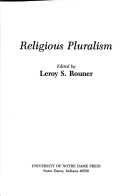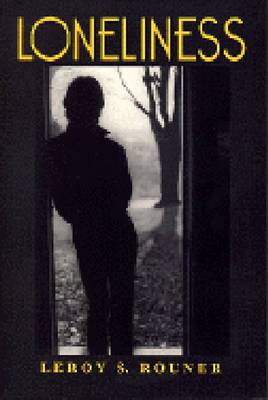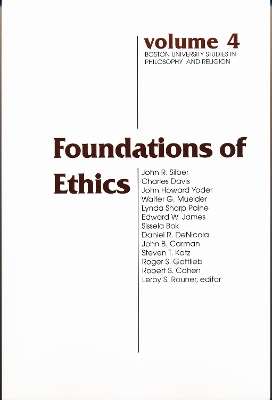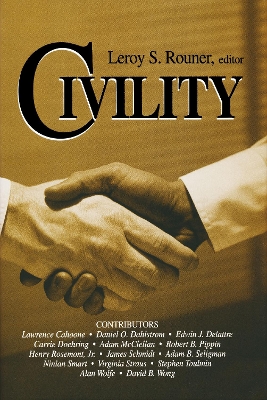Boston University Studies in Philosophy & Religion
3 primary works • 7 total works
Book 5
Book 6
Book 15
Just when we need them the most, our ethical resources seem least clear and reliable. Hence our search for foundations of ethics. Our intent in this volume has not been to solve any specific moral problem, but to explore basic issues: the prospects for a rational ethic; the relation between ethics and a religious mythos; the challenge of non-Western ethical values; problems raised by the practice of confession, the evaluation of privacy, the ubiquity of science, and more. We obviously have not explored all the foundation issues. We cannot even claim that the ones we have explored are always the most significant. We do claim, however, that these explorations give a vivid picture of our ethical dilemma, and present some of the best thinking currently being done. —from the Introduction
v. 12
Virtually all agree that a creative community needs some form of individualism in order to make a community effective. And there is a consensus among the essays that community is a good thing that the quest for community in our time is a significant fact. Finally, the contributors suggest that the critique of the liberal view of the autonomous individual, in vogue in recent years, now seems to have waned.




